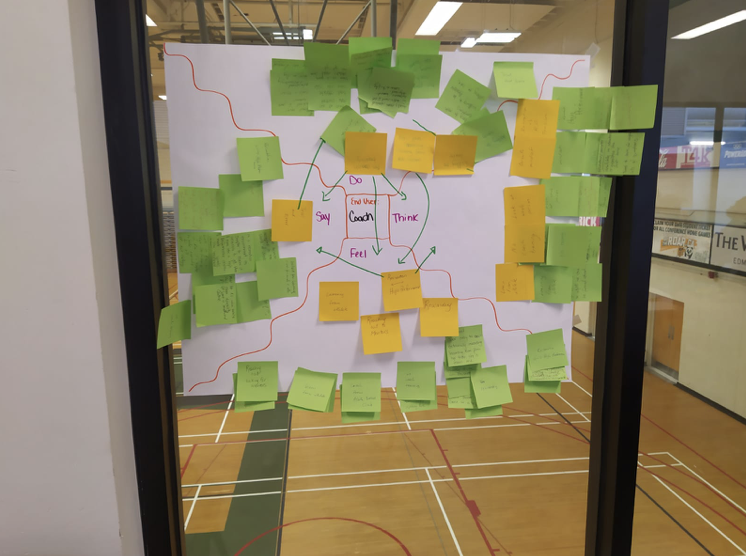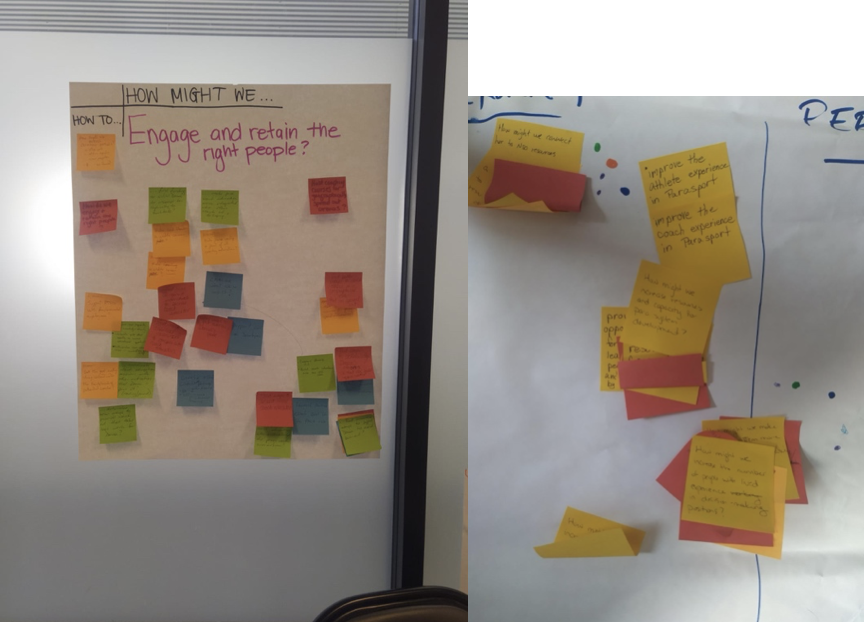In May 2023, the National Coaching for Para Sport Summit (NCPS) took place at the Steadward Centre. A collaborative effort between uOttawa, the University of Alberta, the Coaching Association of Canada (CAC), and the Canadian Paralympic Committee (CPC), the summit acknowledged the importance of disability inclusion in coach education and, more importantly, delved into the practicalities of integrating inclusive content into the coaching landscape.
The 2-day summit, funded by a SSHRC connection grant, took place in-person and online, and brought together diverse participants, including sport administrators, coach educators, coaches, athletes, disability sport advocates, and coaching researchers. The overarching goal was to shift the narrative from ‘why’ disability inclusion is crucial in coach education to ‘how’ it can be effectively implemented in Canada.
Day 1: Understanding the Landscape
Day 1 of the NCPS, attended by 80 participants, was dedicated to knowledge mobilization, with the objective of understanding the challenges, opportunities, and innovations in coach education for Para sport within the Canadian context. Through theoretical presentations, applied discussions, and panel sessions, participants delved into the intricacies of the broader Canadian Para sport landscape. This step was vital in recognizing the existing gaps and laying the groundwork for the Design Thinking (DT) process that would follow.
Day 2: Design Thinking in action
Day 2 saw 35 sport stakeholders actively engaged in the DT process to address the design challenge: “Re-imagine coach development that delivers a high-quality Para sport experience that is accessible for all.” This human-centred research approach, well-captured by Brown (2008) as an “iterative process in which you seek to understand your users, challenge assumptions, redefine problems, and create innovative solutions,” was chosen for its potential to generate tangible and implementable solutions.
The NCPS Design Thinking process unfolded according to the 6 iterative process steps of the Hasso Plattner Institute 2018 Design Thinking Model, composed of the ‘problem’ and ‘solution’ spaces.
Introducing Design Thinking
A form of human-centred research, DT is beneficial for exploring complex social problems and optimizing knowledge translation by producing tangible, feasible, and viable solutions applicable in the real world. The NCPS case aimed to fill a gap of research in the sport domain. Below, we outline the steps of our DT process.
NCPS Design Thinking process Step 1: Understand: Day 1 of the NCPS aimed to generate contextual insights into the broader Canadian Para sport landscape through theoretical, applied presentations, and panel discussions to recognize the existing gaps.
Step 2: Observe: This step sought to empathize with diverse user experiences related to Para sport coaching and remain reflexive about personal biases on the issue. Groups of people holding similar roles in the Para sport system (for example, athletes, coaches, and administrators) were tasked with developing an interview guide and interviewing one group member to learn more about that specific end-user. The groups’ notes were categorized using an empathy map template (see Figure 1).

Step 3: Point of view (POV): Participants were then re-assigned to diverse groups to gain a new perspective on present challenges. Each group was tasked with synthesizing and presenting the findings in a creative and easily digestible way through a fictional persona. Six personas were co-created, each one reflecting the needs of one end-user (e.g., High Performance Development (HPD) Pathways manager; see Figure 2).

Step 4: Ideate: With the various points of views defined, groups began brainstorming possible solutions to enhance the experiences of people embodied by the persona through “How Might We” (HMW) and “How To” questions (see Figure 4). The groups then evaluated the How To’s based on desirability, feasibility, and viability through dot voting.

Step 5: Prototype: This step tested the proposed solutions (How To’s) efficiently and quickly with low risk (Lewrick et al., 2020). Below we provide a short overview of each group’s prototype based on their persona. These prototypes are representative of the 6 personas, not generalized to all end-users in the Para sport system.
- “Climb your passion to a community engagement strategy” presented by HPD Pathways aims to have people with disabilities engage in all parts of the sport system by bringing together different sectors of the sport system (e.g., grassroots, high performance, etc.) to work together to pinpoint whose voices are missing and build deeper connections between sport communities.
- “Sport-Specific Parasport Coaching Summit Series” presented by Provincial Sport Organizations. End-users face challenges accessing knowledge, resources, connection, and collaborative opportunities in coach education for Para sport. A series of sport-specific Para Coaching Summit(s) could be held online and hosted by individual National Sport Organizations (NSOs). These mini summits would serve as a space for coaches to come together for knowledge translation and networking.
- “Para athlete-coach mentorship program” presented by Athletes. A structured mentorship program for people with lived experience was proposed to overcome past experiences and provide more positive outcomes for future athletes as a coach. This program would have national reach through high-value partnerships with the CAC and CPC and pair up Para coaches with abled-bodied coaches to facilitate more social impact.
- “Leadership policy changes” presented by Coaches. Coaches across Canada feel unsupported by their communities and the lack of training resulting in overwhelming stress and anxiety. There needs to be more deliberate involvement of people with lived experience at all levels of the sport system, especially in leadership positions. Leadership representation in NSOs (e.g., CPC) should mandate 51% disabled executives by 2040, beginning with their CEO. Para sport nuances must be infused into all NCCP content. Aim for 20% of NCCP course facilitators to identify as a person with a disability.
- “Canadian Coaching Collective” presented by Coach Developers. End-users seem to work in silos in their provinces and sometimes must work other non-sport related jobs to supplement their income. A quarterly in-person ‘coach education collective’ was proposed. Organized in partnership with NSOs, the collective would come together to co-create ‘gold standards’ for their sports by sharing resources.
- “CAC locker room resources” presented by Coaches (online group). End-users identified the need to re-prioritize general coach education to increase awareness of Para sport coaching for entry-level coach education and mentorship to advance Para sport coach development. The CAC would work with individual sport organizations to develop a plan for each sport’s specific unique considerations.
Step 6: Test: It was beyond the NCPS’ scope to test these solutions. However, each group created 3-minute pitches to present to all participants.
Conclusions
The purpose of the NCPS was to bring together a diverse group of sport end-users to re-imagine coach development that delivers a high-quality, accessible for all, Para sport experience. By disseminating the solutions created through the DT process, we hope interested parties may take these prototypes onto the testing stage. Included here is a short survey for community members to offer their feedback on the prototypes and how we can continue to build momentum from the NCPS.